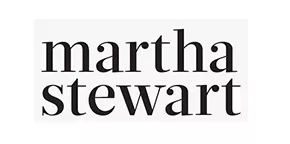
Careers Outside the Kitchen
In the past, working in food typically meant becoming a restaurant chef.
Today, however, it's hard to keep track of the diverse range of opportunities in the culinary industry. From food television to cookbook publishing, catering and event planning careers to crafting unique pastry products, our alumni work in every aspect of the food world — and it's never been a more exciting time to be there. Below is a summary of some food industry careers outside the kitchen.
Career opportunities vary in the world of food media, due to two long-term trends. Ever since America was introduced to televised French cooking by Julia Child, food TV has captured our curiosity. Today, cooking programs and food-focused shows have diversified across multiple networks and content producers, including the Food Network, Cooking Channel, Bravo, PBS, Travel Channel and Netflix, to name just a few. Culinary knowledge and experience are valuable assets for those applying to most jobs at these media outlets.
The more recent trend and popularity of video content creation for YouTube, Instagram, TikTok and websites like Tasty and Epicurious has created even more career opportunities. For example, food photography and food styling careers are booming, as the market for food content has grown on social media platforms.
Additionally, educated food writers and editors are always in demand in the media world. The responsibilities of food journalists vary widely; certain roles involve significant domestic and international travel, while others may predominantly require recipe development work in a test kitchen.
Many professionals in food media careers also find the opportunity to teach classes, write or ghost-write cookbooks and other food-centric content for the web.
Personal chefs work for multiple clients, preparing meals in private homes or delivering pre-made meals. There can be a fair degree of flexibility in terms of the number of clients per chef and the ability to find part-time work. Personal chefs typically find their work through word of mouth and references. We have often seen that personal chefs find related work teaching cooking classes, working freelance as a recipe tester or expanding into a food styling career.
Private chefs typically work for one client or family, and the range of work might include cooking for parties, private events or for individuals with specific dietary interests or restrictions. Pursuing a private chef career means your schedule can be dictated by your client. But the role may include perks such as seasonal travel with your client. Private chef careers are often developed through staffing agencies.
Catering holds one of the largest segments of food industry careers. From elaborate seated wedding dinners to prepared lunch sandwich platters, catered food is constantly in demand. Many burgeoning culinary entrepreneurs are interested in the field as a catering business can be started with minimal funding, in comparison to full-scale restaurants. Caterers typically work out of an owned or rented industrial kitchen space and deliver their orders to their client directly. Catering operations employ not only cooks but servers, bartenders and even maintenance staff. Caterers may also work in collaboration with those in event planning careers depending on the occasion. Hours can vary greatly depending on season and demand. Caterers that provide a unique and individualized dining experience or special themes can demand premium prices for their services.
Wine, beverage and mixology are growing segments of the broader culinary landscape. The idea of pairing beverages with food has long been the norm in restaurants and hospitality, but the artisanal production of beverages and wine has significantly increased in recent years, providing a more interesting range of products for professional and home use. No matter how you pour it, beverages (alcoholic and non-alcoholic) are a multi-billion-dollar sector of the overall hospitality market. To underscore the diversity this sector represents, job titles in this area include Beverage Director, Sommelier, Mixologist, Wine Buyer and Beverage Chef.
For those who enjoy working with food, organizing a party and providing great client hospitality, event management and planning is an attractive career path. Those with this career ambition thrive on the energy of pulling off a great event and excel at the organization and attention to detail required to create successful experiences. Culinary and beverage knowledge is also helpful since virtually all events have a food and beverage component.
Event planning careers provide experience in a range of settings, from catering and event companies to hotels, resorts, museums, universities and restaurant groups.
There are many ways that a person with culinary knowledge and marketing experience can combine their skills to pursue a food-focused marketing or public relations career. Since nearly every culinary enterprise is a business that needs and wants customers, marketing and public relations are an important part of the mix.
Many public relations firms specialize in chefs, restaurants or food. Potential employees who have been to culinary school and/or worked in restaurants provide additional insights about the business that are often considered valuable. In fact, since most journalists who cover food and restaurants have this knowledge, they expect their PR counterparts to have similar expertise.
Alternatively, chefs and restaurant groups that have reached significant scale (or fame) are likely to have marketing and public relations staff working in-house. Chefs and restaurants regularly rely on social media to raise brand awareness and gain customers. These efforts are often managed by people with culinary knowledge and marketing know-how.
Food stylists create the eye-popping, mouth-watering dishes that get photographed for magazines, newspapers, books, television and advertisements. It takes an artistic eye as well as an ability to cook to develop a successful food styling career. Many food stylists work independently for photographers, bringing to life the vision of a cookbook writer or advertiser. They may also work in television or for other visual media outlets. After preparing the food, they "stage" it and get it ready for its media debut. Attention to detail is paramount, and as part of the photographic process, the stylist may use tricks of the trade to make the food appear its most appealing, or may choose to keep it in its most natural state.
Some stylists work part time for different photographers and can put together an independent, active food media career, while others are employed full time by TV stations or magazines. Typically, externships or apprenticeships with seasoned food stylists are the best way to begin a career in this creative sector of the food world.
Writing and getting your own cookbook published is a lofty goal, but by no means impossible. ICE alumni frequently release food books and cookbooks, often featured on our blog. The topics are diverse, from international foods to cooking for children. In some cases, the book is a complement to the author’s already established business. Another route is to become a contributor or co-author of your employer’s book. This is particularly true in the case of working restaurant chefs who may need staff help to get their book ready to publish.
Today's increasingly food savvy public is eager to bypass the supermarket for specialty food retailers, which means that there are plenty of career opportunities in this area of the food industry. If you have a keen sense of curiosity about products and ingredients, you might consider a career as a cheese monger, butcher or purveyor of specialty pastry and baking items.
While opening a small business is one way to find work, many major national companies also hire professionals with a true passion for ingredients to help them source, buy and merchandise culinary products.
Positions in food policy and non-profit work are important aspects of the industry, as they provide valuable educational services and help to produce and provide access to better food for all. If you're looking for a food industry career that will combine your love of food with your interests in making the world a better place, there are a multitude of paths you might take. Local food banks and other non-profits tackle issues of hunger relief and healthful food access for the needy, while other organizations may focus on children's school food policy or advocacy for small food businesses. Still, other dimensions of policy work are carried out by the myriad of trade associations that exist around the globe.
Beyond restaurants, food industry careers find many chefs working in corporate kitchens, developing recipes and products that are consumed by millions of people. All the packaged food products that we purchase in the grocery store have been designed and created in research kitchens by chefs with an eye for analytic detail. From concept to execution, research and development chefs create recipes and then work to bring them to market. They understand a bit of chemistry along with their ability to cook, crafting items that balance taste, texture, perishability and marketability.
In addition to large food corporations, some ingredient producers and distributors employ test kitchen chefs to help them find new applications for their products. In the world of food media careers, magazines and even TV shows have test kitchen staff to help develop their editorial content.
Corporate and institutional dining is the practice of feeding large groups of people at once, often in office buildings, schools or hospitals. Corporate dining covers everything from the company’s employee cafeteria where pizza may be served, to four-course meals landing on private executive dining room tables. Institutional dining can be found in hospitals and schools, where the goal is often tasty yet efficient and nutritional food for the masses. Corporations like Google and Meta have proven that institutional dining doesn’t need to be bland and boring, but rather can be just as fresh and vibrant as smaller scale operations.
Many chefs enjoy the stable hours and weekends off that most corporate and institutional kitchens provide, while others are primarily motivated by bringing healthier or fresher foods to cafeterias everywhere.
A vital role in any food & beverage team is the purchasing director. The purchasing department works closely with the chef and general manager to source all ingredients and supplies, negotiate good prices, maintain inventory levels and ensure that received items are accurate and of high quality. Successful purchasers count on a diverse skill set of organizational ability, accounting acumen and excellent product knowledge in the areas in which they are purchasing.
These roles are typically found in higher volume operations, such as hotels, full-service catering companies and larger or multi-unit restaurant settings.
Developing ones’ own product line is a challenging and competitive proposition, but a highly rewarding one when successful. Of course, the challenge is related to the scope of the ambition. The good news is that one can start small and increase production as a successful product finds its market. All the trends in our country point to more room for entrepreneurial product development. The public continues to appreciate artisanal, seasonal, local, healthy and unique ingredients and food products — from salsa to pickles, cocktail bitters, chocolate, smoked meats and cheeses. The best new products almost never come from big companies; they come from entrepreneurs.
Successful entrepreneurs often have prior culinary training and restaurant experience. The understanding and appreciation of how to make an existing product “better” or “unique” comes directly from the experience of cooking in a restaurant and working with chefs. Prior culinary experience also gives entrepreneurs a common language and understanding that can be useful when talking to producers, co-packers, distributors and even customers. We see that often the entrepreneur will combine their retail/restaurant business and their product development business too.

"The first week [at Bon Appétit], I was like, these people are crazy, everyone is so happy, what do you guys eat for breakfast? I love it and I’m learning a lot. Because it’s a test kitchen, you have to work with food editors and chefs and you get to test the recipes, or “cross test” — that’s how you say it. I’d like that to be my next step forward, a full-time cross tester."



